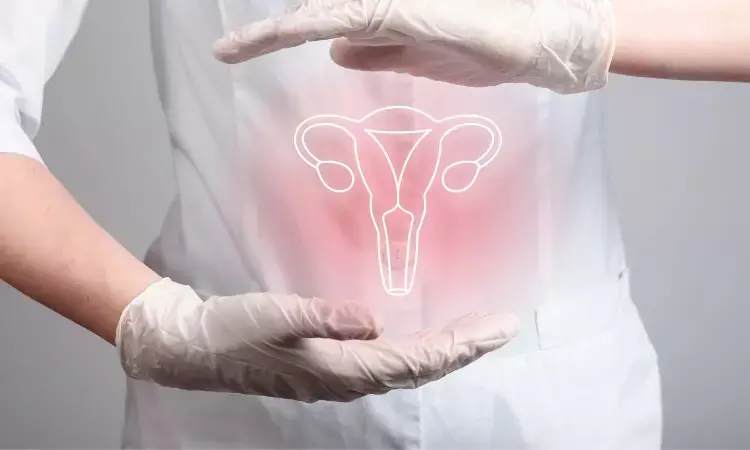- Home
- Medical news & Guidelines
- Anesthesiology
- Cardiology and CTVS
- Critical Care
- Dentistry
- Dermatology
- Diabetes and Endocrinology
- ENT
- Gastroenterology
- Medicine
- Nephrology
- Neurology
- Obstretics-Gynaecology
- Oncology
- Ophthalmology
- Orthopaedics
- Pediatrics-Neonatology
- Psychiatry
- Pulmonology
- Radiology
- Surgery
- Urology
- Laboratory Medicine
- Diet
- Nursing
- Paramedical
- Physiotherapy
- Health news
- Fact Check
- Bone Health Fact Check
- Brain Health Fact Check
- Cancer Related Fact Check
- Child Care Fact Check
- Dental and oral health fact check
- Diabetes and metabolic health fact check
- Diet and Nutrition Fact Check
- Eye and ENT Care Fact Check
- Fitness fact check
- Gut health fact check
- Heart health fact check
- Kidney health fact check
- Medical education fact check
- Men's health fact check
- Respiratory fact check
- Skin and hair care fact check
- Vaccine and Immunization fact check
- Women's health fact check
- AYUSH
- State News
- Andaman and Nicobar Islands
- Andhra Pradesh
- Arunachal Pradesh
- Assam
- Bihar
- Chandigarh
- Chattisgarh
- Dadra and Nagar Haveli
- Daman and Diu
- Delhi
- Goa
- Gujarat
- Haryana
- Himachal Pradesh
- Jammu & Kashmir
- Jharkhand
- Karnataka
- Kerala
- Ladakh
- Lakshadweep
- Madhya Pradesh
- Maharashtra
- Manipur
- Meghalaya
- Mizoram
- Nagaland
- Odisha
- Puducherry
- Punjab
- Rajasthan
- Sikkim
- Tamil Nadu
- Telangana
- Tripura
- Uttar Pradesh
- Uttrakhand
- West Bengal
- Medical Education
- Industry
Early detection and bundled treatment of postpartum haemorrhage reduce risk of complications: NEJM

A research published in The New England Journal of Medicine, "Randomized Trial of Early Detection and Treatment of Postpartum Hemorrhage," by Ioannis Gallos et al., has concluded that early detection and bundled treatment lower the risk of severe postpartum haemorrhage, laparotomy for bleeding, or death from bleeding in patients having a vaginal delivery.
There is an increased risk of complications due to Delays in detecting and managing postpartum haemorrhage. A blood-collection drape provides objective, accurate, and early diagnosis, and inconsistent/delayed use of effective interventions may be able to be addressed by a treatment bundle.
Considering this background, researchers performed an international, cluster-randomized trial to assess a multicomponent clinical intervention for postpartum haemorrhage in patients having a vaginal delivery. This study measured severe postpartum haemorrhage (blood loss, ≥1000 ml), laparotomy, or maternal death from bleeding. The secondary outcomes were the detection of postpartum haemorrhage and adherence to the treatment bundle.
Study Group details are:
Intervention group: A calibrated blood-collection drape for detecting postpartum haemorrhage early and a bundle of first-response treatments like uterine massage, oxytocic drugs, tranexamic acid, intravenous fluids, examination, and escalation, supported by an implementation strategy.
Control group: Hospitals provided usual care.
The results of the study are:
- Eighty secondary-level hospitals across Kenya, Nigeria, South Africa, and Tanzania were included.
- Two hundred ten thousand one hundred thirty-two patients who underwent vaginal delivery were randomly assigned to the intervention group and usual-care group.
- In the intervention and control groups, primary-outcome events occurred in 1.6% and 4.3 % of the patients, respectively, with a risk ratio of 0.40.
- 93.1 % and 51.1 % of patients in the intervention and usual care group had Postpartum haemorrhage detected with a rate ratio of 1.58.
- The treatment bundle was used in 91.2% and 19.4%, respectively, with a rate ratio of 4.94.
Concluding further, early detection of postpartum haemorrhage and bundled treatment lowers the risk of the primary outcome, a composite of severe postpartum haemorrhage, laparotomy for bleeding, or death from bleeding, than usual care among patients having a vaginal delivery.
As acknowledged, the study by Bill and Melinda Gates Foundation
Further reading:
BDS, MDS in Periodontics and Implantology
Dr. Aditi Yadav is a BDS, MDS in Periodontics and Implantology. She has a clinical experience of 5 years as a laser dental surgeon. She also has a Diploma in clinical research and pharmacovigilance and is a Certified data scientist. She is currently working as a content developer in e-health services. Dr. Yadav has a keen interest in Medical Journalism and is actively involved in Medical Research writing.
Dr Kamal Kant Kohli-MBBS, DTCD- a chest specialist with more than 30 years of practice and a flair for writing clinical articles, Dr Kamal Kant Kohli joined Medical Dialogues as a Chief Editor of Medical News. Besides writing articles, as an editor, he proofreads and verifies all the medical content published on Medical Dialogues including those coming from journals, studies,medical conferences,guidelines etc. Email: drkohli@medicaldialogues.in. Contact no. 011-43720751


